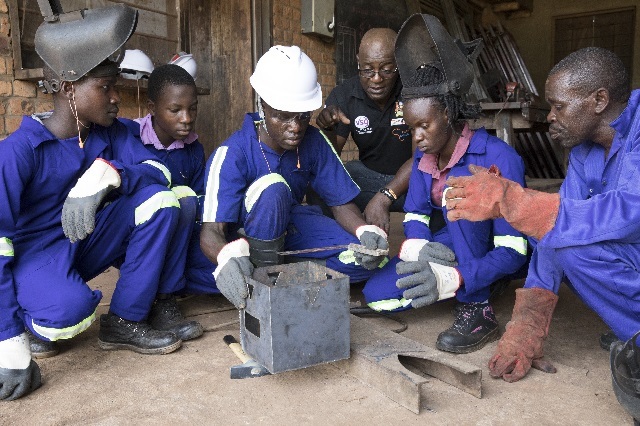
Kampala, Uganda | THE INDEPENDENT | The Uganda Business and Technical Examinations Board-UBTEB has accused some industries of relaxing to offer training placement to many of their trainees.
Onesmus Oyesigye, the Executive Secretary of UBTEB said that there is reluctance by some industries to offer industrial training placement, yet this is important in the acquisition of hands-on training.
“The late placement of trainees for internship by some training institutions affects the completion rates of candidates,” Oyesigye said.
He was speaking on Wednesday at the release of the November-December 2023 end-of-program and modular assessment results.
Industrial attachment is a mandatory requirement for trainees to facilitate the achievement of specific learning outcomes that would potentially lead to employment on completion of a training program.
Industrial attachments typically involve training providers and industries (through employers) forming partnerships to offer situated learning opportunities in the workplace so that learners and Technical Vocational Education and Training (TVET) practitioners have access to authentic experiences that only the workplace can offer.
For years now, UBTEB has been complaining about industries rejecting students and wants the government to formulate a policy that compels employers to offer attachment to students.
Employers and industries frequently decline to accept trainees due to several factors, including cost and resource constraints. Their concerns encompass potential safety risks, as well as worries about reduced productivity. Hosting trainees is perceived as possibly impacting productivity since students typically demand guidance and supervision, which could divert the focus of experienced employees from their usual duties.
The Ministry of Education has in the past said that the issue will be tackled under the ongoing TVET reforms.
During the release, the Minister of Education and Sports in a speech read by the State Minister for Primary Education Joyce Moriku Kaducu reiterated that the reforms were in high gear and that the bill which awaiting implementation.
“…as a result, the TVET bill is in advanced stages. consultation with stakeholders have been concluded and the technical team is incorporating feedback, to enable adoption and later approval by parliament,” Kaducu read.
She rallied stakeholders in the industry to support TVET institutions in placement of the TVET trainees for industrial training and internship for it reduces the cost of training employees.
She further encouraged TVET trainers to deepen the adaptation of training with the production where the skilling of young people should focus on the utilization of material for projects that are helpful to the surrounding communities.
“This will reduce the cost of practical assessment, promote cost sharing with the communities and income generation in TVET institutions,” she added.
Oyesigye also added that they are facing challenges while assessing Special needs candidates on curricula that are not designed for special needs trainees, especially candidates of journalism and other media engineering-related Programmes. It is against this background that he called for a review of the curriculum to cater to the loop.
He also revealed that while there have been efforts to curb malpractice, some candidates have continued to risk and engage in malpractice, and as a result, the board confirmed a total of 55 candidates being found guilty of engaging in malpractice.
Responding to the matter, the Minister of Education agreed with the board’s recommendations and canceled the results of the 55 candidates who had been found guilty of engaging in malpractice “I have taken note of the 55 candidates whose results have been recommended by the Board for cancellation due to involvement in examination malpractices. I have also taken note of the fair hearing process given to the culprits as provided by law by Section 9 (3) of the UBTEB Regulations.” She said.
“I, therefore, agree with the recommendation of the Board that the results of the affected candidates be canceled. TVET Institutions and trainees should desist from the vice because the Ministry does not tolerate it.” She added.
On assessment, UBTEB has reported a high success rate in the recently concluded examinations. Out of the 21,179 candidates who sat for the exams, 20,017 candidates (93%) successfully acquired all the competencies in their respective trades.
Meanwhile, the Minister also ordered the TVET department, Board of Governors, and Councils of public institutions to monitor the time on task for the Heads of TVET Institutions and TVET Trainers respectively who have been reportedly absenting themselves and not attending to their duty as required. for the Ministry to take action against them.
“It has come to my attention that some Heads of TVET Institutions, and TVET Trainers are absenting themselves and not attending to their duty as required.
In the long run, it leads to absenteeism, drops out, and low completion rates among trainees,” she said adding that her ministry will enforce disciplinary measures against staff who would not conform to regular attendance to duty especially now that the government has enhanced the salary payments.
******
URN
 The Independent Uganda: You get the Truth we Pay the Price
The Independent Uganda: You get the Truth we Pay the Price





